Feature Snippet
The best mushroom supplements for menopause are Reishi, Lion’s Mane, Cordyceps, and Maitake. Together, they support stress balance, sleep, cognitive clarity, energy, and inflammation, all key concerns during perimenopause and menopause. Women typically pair these extracts to help manage hot flashes, mood changes, fatigue, and brain fog.
Menopause is not a disease,but it can feel like a storm.
From hot flashes and mood swings to brain fog and insomnia, the hormonal shift can hijack your mind and body. For many women, synthetic hormone treatments feel like the only option.
But what if nature had another answer?
TL;DR: Perimenopause and menopause bring hormonal changes that affect mood, sleep, energy, and cognition. Medicinal mushrooms like Reishi, Lion’s Mane, Cordyceps, and Maitake offer natural, research-backed support to ease symptoms and restore balance. Adding Shiitake and Oyster mushrooms can further enhance cardiovascular and immune health.
Table of Contents
- What is Menopause?
- Symptoms of Menopause
- Why Use Mushrooms Supplements?
- Best Mushroom Supplements for Menopause
- Honourable Mentions: Shiitake & Oyster
- 7 Natural Menopause Treatments
- Quality Check for Mushroom Supplements
- Dosage Recommendation
- Side Effects & Safety
- Frequently Asked Questions
- References
- Continue Exploring

Sign Up for Launch Updates & Earliest Access
What is Menopause?
Menopause is a natural event and transition women experience, but the timing, experience, and symptoms vary from person to person.
Menopause brings a cascade of uncomfortable symptoms caused by declining estrogen and progesterone levels. These hormonal shifts affect everything from mood and memory to metabolism and sleep.

Many women feel like they’re "losing themselves", emotionally and physically. Sleep becomes elusive. Anxiety increases. Libido disappears. Energy levels plummet.
And worst of all, most solutions offered are reactive, not regenerative.
This is where medicinal mushrooms come in, specifically adaptogenic fungi that support hormonal balance, reduce stress, enhance cognition, and regulate inflammation. Backed by both traditional use and clinical evidence, certain mushrooms are emerging as true allies in this life stage.
💡 Did You Know? In the UK, the average menopausal age is 51, but it can begin as early as 45 or as late as 55 years. Your genetics also determine when you usually start menopause. Chances are, it’s not far from when grandma or mom started theirs.
Why It Matters
Menopause is a major transition in a woman’s life that can affect physical, emotional, and cognitive wellness. Understanding both the symptoms and natural support options like medicinal mushrooms, helps you make informed choices to navigate this phase with confidence and resilience.
What are the symptoms of Menopause?
Menopause is defined as the time 12 months after your last period. But most symptoms start earlier, in perimenopause, when estrogen and progesterone levels begin to drop.
For many women, this hormonal shift triggers:
- Hot flushes and night sweats
- Mood swings, anxiety, or low motivation
- Bloating, gut issues, and sluggish digestion
- Insomnia and disrupted sleep cycles
- Joint stiffness and body aches
- Fatigue with menopause and brain fog
If this sounds like you, you’re not alone. Over 13 million women in the UK are navigating this phase and many are looking for natural supplements for menopause that don’t just mask symptoms, but truly restore balance.
Noteworthy Take: There are a lot of ways to mitigate menopause symptoms, and they often include prescription medication. Unfortunately, prescription pills often come with side effects.This is a main reason why many women have turned to natural help for menopause like medicinal mushrooms.
Why Use Mushrooms for Menopause and Perimenopause?
Medicinal mushrooms work differently from isolated compounds. They contain polysaccharides, beta-glucans, and triterpenes that regulate stress hormones, support brain and gut function, and gently improve resilience across your systems.

Unlike synthetic hormone treatments, mushrooms aren’t hormonal, but they help balance your body’s own endocrine rhythms. They’re considered among the top hormone balancing supplements thanks to their adaptogenic nature.
Best of all, they’re plant-based, safe for long-term use, and come with a long tradition of use in Chinese and Japanese medicine.
Best Mushroom Supplements for Menopause
There are a lot of species of mushrooms out there, but scientists have kept their eyes on a few that have potential therapeutic benefits for menopause. When you’re in that transitional perimenopause window, when cycles grow unpredictable, hot flashes start flickering in, and energy feels like it’s slipping away.
Natural Support for Menopause
- Reishi (Ganoderma lucidum) for Menopause
- Lion’s Mane (Hericium erinaceus) for Menopause
- Cordyceps (Cordyceps militaris) for Menopause
- Maitake (Grifola frondosa) for Menopause
These four adaptogenic mushrooms rise to the top as the best perimenopause supplements in the UK women turn to for targeted relief. Each offers a unique blend of compounds that work on multiple systems; hormonal, immune, nervous, and metabolic, to help you move through this stage with more ease, clarity, and confidence.
What you choose to supplement can make all the difference.
Reishi: Best Supplement for Sleep & Hot Flashes
Overview
Reishi (Ganoderma lucidum) is a woody, bracket fungus with a shiny, kidney-shaped cap that can range from chestnut brown to blood red. Revered in Traditional Chinese Medicine as the “Mushroom of Immortality,” Reishi has been prescribed for over 2,000 years to support longevity, immune resilience, and stress adaptation.
Its complex profile includes triterpenes (for anti-inflammation and liver support), polysaccharides & beta-glucans (for immune modulation), and adenosine (for calming the nervous system).

Why It’s Important
Perimenopause frequently triggers elevated cortisol (the stress hormone), which fuels night sweats, insomnia, and anxiety. Reishi’s rich triterpene and polysaccharide profile specifically targets the HPA axis, helping to regulate stress-response and hormonal fluctuations.
How It Benefits You
- Calm Nights: Lowers cortisol so hot flashes fade and restorative sleep returns.
- Emotional Balance: Eases worry and racing thoughts, reducing mood swings and irritability.
- Smoother Transitions: By cooling those sudden flushes, you wake refreshed, not drenched, and feel more grounded throughout the day.
🔗 Read more about the Connection Between Reishi, Rest and Hormone Balance
Lion’s Mane: Natural Help for Brain Fog & Clarity
Overview
Lion’s Mane (Hericium erinaceus) is easily identified by its cascading white spines, resembling a lion’s mane. Native to Europe, Asia, and North America, this mushroom has a long history in Japanese kampo medicine for supporting cognitive health.
Its bioactive compounds, hericenones (in the fruiting body) and erinacines (in the mycelium), cross the blood-brain barrier to stimulate nerve growth factor (NGF) and brain-derived neurotrophic factor (BDNF), both critical for neuronal repair and regeneration.

Why It’s Important
Cognitive slowdown and fatigue with menopause often stem from declining estrogen, which influences neurotransmitter production and neural connectivity. Lion’s Mane stimulates nerve growth factor (NGF), nurturing brain cells and maintaining synaptic health.
How It Benefits You
- Sharper Focus: Improves short-term memory and helps you recall names, dates, and details effortlessly.
- Steadier Energy: As mental clarity improves, the mid-day slump eases, so you feel less drained and more in control.
- Mood Uplift: By supporting balanced neurotransmitter levels, Lion’s Mane reduces brain fog and the frustration that comes with it.
Cordyceps: Supplements for Lack of Energy & Libido
Overview
Cordyceps (Cordyceps militaris) is a vibrant orange, club-shaped fungus that traditionally parasitizes caterpillars in high-altitude regions of China and Tibet. Used for centuries to enhance stamina, it contains high levels of cordycepin and adenosine, which support mitochondrial function and cellular energy production.
Modern cultivation has made Cordyceps accessible in supplement form, preserving its ability to optimize oxygen utilization and ATP synthesis.

Why It’s Important
Perimenopause often brings a slump in ATP production (your cellular “fuel”), leaving you feeling perpetually tired. Cordyceps enhances mitochondrial function and supports healthy adrenal activity, mitigating both physical and mental exhaustion.
How It Benefits You:
- Sustained Vitality: Raises cellular energy so you breeze through workouts, work deadlines, and busy family mornings.
- Adrenal Harmony: Stabilises cortisol spikes, making stress less exhausting on your system.
- Rekindled Libido: By balancing key hormones, it can restore sexual desire that often wanes during hormonal shifts.
Maitake: Supplements for Bloating
Overview
Maitake (Grifola frondosa), known as the “Dancing Mushroom,” forms large, overlapping clusters of fan-shaped caps at the base of oak and elm trees. Long used in Japanese and Chinese herbalism, Maitake owes its name to foragers who celebrated with dance upon finding a plentiful harvest.
It’s rich in beta-glucans, glycoproteins, and essential minerals (zinc, potassium, magnesium), making it both an immune modulator and metabolic regulator.

Why It’s Important
Inflammation and blood-sugar imbalances are hallmarks of perimenopause, which can cause joint stiffness, bloating, and weight gain. Maitake’s bioactive compounds help modulate inflammatory pathways and improve insulin sensitivity.
How It Benefits You
- Joint Comfort: Reduces inflammatory cytokines, easing aches in knees, hips, and shoulders.
- Slimmer Profile: Regulates glucose metabolism, curbing cravings and persistent belly bloat.
- Digestive Ease: Supports a healthy gut microbiome, reducing gas and stomach discomfort that often accompany hormonal changes.
Shiitake and Oyster Mushrooms for Hormonal Balance
While Reishi, Lion’s Mane, Cordyceps, and Maitake form the core of the peri menopause supplements stack, two more culinary varieties deserve a nod:
Shiitake: Rich in eritadenine and beta-glucans, Shiitake supports healthy cholesterol and weight management, especially useful for perimenopause supplement UK users concerned about cardiovascular health.
Oyster: High in antioxidants and trace minerals like zinc and selenium, Oyster mushrooms provide gentle immune support and skin-nourishing benefits during hormonal shifts.
Use Shiitake or Oyster alongside your main adaptogens for a broader nutrient profile.
7 Natural Menopause Treatments That Really Work
Menopause isn’t just one experience.
That’s why women often report a “domino effect” of symptoms. Instead of trying to mask symptoms in isolation, the smartest strategy is to support the systems behind them with natural compounds.
Here are 7 natural menopause treatments that really work, with real results, minimal side effects, and long-term support for your mind and body.
- Reishi mushroom extract – stress relief & hot flash control
- Lion’s Mane – brain fog, mood stability & energy
- Cordyceps – adrenal support, energy & libido lift
- Maitake – joint comfort, bloating reduction & metabolic balance
- Magnesium glycinate – muscle relaxation & sleep quality
- Omega-3s (EPA/DHA) – hormone production & skin health
- Ashwagandha – cortisol regulation & emotional calm
Combining these 7 natural menopause treatments that really work delivers multi-system support with minimal risk of side effects.
Learn more about 👉 supporting routines for menopause and perimenopause 👈you can incorporate into your lifestyle.
What to look out for when purchasing mushroom supplements
One of the most important aspects are the lab reports. These don't only show the active ingredient testing (i.e. the mushrooms medicinal components) but also the safety tests the mushroom extracts have undergone, such as heavy metals.
Look out for mushroom extracts that are Organic.
Mushrooms are a product of their environment and absorb from their surrounding environment, which if your extracts aren't organic, could result in the mushrooms containing a high level of unwanted toxins and contaminants.
For a detailed guideline on quality components to consider see here.
Dosage Recommendation
Adding functional mushrooms to your diet is easier than you might think. Here are some simple ways to incorporate this superfood into your daily routine:
-
Baseline Dose: Start with 2 capsules or 1 gram per day for general wellness. This helps you experience the foundational benefits of the mushrooms.
- Enhanced Dose: For more pronounced effects, please get in touch with us. Our team can help you determine the best approach for your needs.
With so many mushroom supplements on the market, it's important to choose a high-quality product.
Here are some tips to help you make an informed decision:

Side Effects & Safety
Mushrooms are generally well-tolerated by most people and are considered hypoallergenic. However, you should not use mushroom extracts if you have a mushroom allergy.
You should also be cautious using mushroom extracts whilst on blood thinning medication, as some mushroom components may innately have blood-thinning effects.
⚠️ Lion’s mane should also not be used by people with asthma. ⚠️
In conclusion, menopause is a normal part of a woman's transition. With it comes a variety of symptoms that, while manageable, can often negatively impact the quality of life. There is a wide range of conventional treatments available for symptoms of menopause, but many have turned to natural supplements like mushrooms.
The right mushroom supplements can help alleviate many symptoms of menopause as well as impart science-approved health benefits.
Frequently Asked Questions
1. Which mushrooms are most effective for managing symptoms of perimenopause or menopause?
For women navigating perimenopause, a blend of four mushroom adaptogens Reishi, Lion’s Mane, Cordyceps, and Maitake offers focused relief across key symptoms:
- Reishi is praised for reducing hot flashes and night sweats and supporting the HPA-axis–mediated cortisol response, which often goes haywire in menopause.
- Lion’s Mane has evidence in post‑menopausal populations showing it eases anxiety, improves focus, and reduces brain fog. In one clinical trial, 4 weeks of Lion’s Mane improved mood and concentration versus placebo.
- Cordyceps supports mitochondrial ATP production, counters fatigue, and may help balance adrenal hormones to sustain energy. Animal data and early trials show improvement in post‑exercise resilience.
- Maitake helps reduce inflammatory cytokines and symptoms such as joint pain and bloating and may support insulin sensitivity and glucose balance.
Two culinary mushrooms Shiitake and Oyster are often included in perimenopause supplement stacks for their added cardiovascular (Shiitake), immune, and skin‑support benefits (Oyster).
These mushrooms are widely used as natural supplements for menopause and perimenopause symptoms in women in the UK and beyond.
2. How do mushrooms for menopause support hormonal balance, mood, sleep, and cognition?
Adaptogenic mushrooms act on several hormonal and nervous system pathways:
- HPA‑axis modulation: Reishi and Cordyceps help temper cortisol surges and stabilize the stress response to reduce hot flashes, anxiety, and insomnia.
- Neurotrophic stimulation: Lion’s Mane contains hericenones and erinacines, compounds known to cross the blood–brain barrier and promote nerve growth factor (NGF) and BDNF, rebuilding neural connections and lifting brain fog.
- Anti‑inflammatory & metabolic regulation: Maitake and Shiitake offer beta‑glucans and triterpenes that reduce inflammation and support glucose control a key factor when estrogen declines impact insulin sensitivity.
Together, they form a multi-system approach to perimenopause with effects on stress resilience, sleep, mood, metabolism, immunity, and cognitive clarity.
3. How quickly can I expect to notice benefits when using mushrooms for menopause?
Clinical and anecdotal timelines vary:
- In a controlled study of post‑menopausal women, 2 g/day of Lion’s Mane lowered mood‑related symptoms within 4 weeks.
- A deodorized Maitake β‑glucan extract taken over 8 weeks significantly reduced hot flashes and night sweats
- Longer studies (e.g. 16 weeks of Lion’s Mane) have shown improvements in memory and executive function in older adults.
Most women report noticing improvements in hot flashes, sleep, energy, or focus within 3–6 weeks, with more robust effects after 8–16 weeks of consistent use.
4. Are natural supplements like mushrooms actually safe and what side effects might I experience?
Adaptogenic mushrooms (Reishi, Lion’s Mane, Cordyceps, Maitake) are generally considered safe for most individuals when used at recommended doses.
Reported side effects are rare and typically mild, such as:
- Digestive discomfort (bloating, gas, nausea)
- Dizziness, dry mouth, or rash in sensitive individuals, most notably with Reishi
Very occasionally, cases allergic reactions (especially in those with mushroom sensitivity) have been reported.
5. What should I look for when choosing perimenopause supplements in the UK?
Quality matters. When shopping for mushroom supplements for menopause in the UK, look for:
- Organic mushroom extracts (to avoid pesticide and heavy metal contamination)
- Full‑spectrum dual extraction (using alcohol extraction, water extraction or dual extraction to preserve bioactive compounds)
- Third‑party lab testing e.g. Informed Choice, NSF, Eurofins or USP certification to confirm the product contains what it claims and is free of contaminants or banned substances.
- Batch‑specific lab reports available online
A good perimenopause supplement in UK routine balances tradition with transparency, potency safety, and purity.
6. Can I take mushroom supplements alongside hormone therapy (HRT) or prescribed medications?
While mushrooms are not hormonal, they may interact with certain medications or therapies:
- Reishi may have mild blood‑thinning effects and could interact with anticoagulants or blood pressure medications.
- Lion’s Mane may potentiate the effects of other neuroactive supplements like ashwagandha.
- Cordyceps may influence adrenals and thyroid pathways relevant if you are on medications for those systems.
It’s best to check with your chiropractor, GP, or menopause specialist especially if you are currently on HRT, thyroid medication, or blood thinners.
7. What is a safe starting dosage and how should I incorporate mushrooms for menopause into my routine?
Most women begin with a baseline dose for general support and then escalate depending on symptom severity:
- Baseline: ~1 g of mushroom blend or 2 capsules daily (often 500 mg each concentrate of Reishi/Lion’s Mane/Cordyceps) for foundational relief
- Enhanced dose: Increasing up to ~3 g/day+ (or equivalent extract strength) for targeted symptoms, such as hot flashes or brain fog.
You can also book a free consultation with us
Begin slowly especially if new to mushroom supplements observing how your body responds before increasing the dose. As always, consult your healthcare provider, particularly if combining with other medications or therapies.
References
1. Bhardwaj N, Katyal P, Sharma AK. Suppression of inflammatory and allergic responses by pharmacologically potent fungus Ganoderma lucidum. Recent Pat Inflamm Allergy Drug Discov. 2014;8(2):104-17. doi: 10.2174/1872213x08666140619110657. PMID: 24948193.
2. Pazzi F, Adsuar JC, Domínguez-Muñoz FJ, García-Gordillo MA, Gusi N, Collado-Mateo D. Ganoderma lucidum Effects on Mood and Health-Related Quality of Life in Women with Fibromyalgia. Healthcare (Basel). 2020 Nov 30;8(4):520. doi: 10.3390/healthcare8040520. PMID: 33265969; PMCID: PMC7712001.
3. Manohar V, Talpur NA, Echard BW, Lieberman S, Preuss HG. Effects of a water-soluble extract of maitake mushroom on circulating glucose/insulin concentrations in KK mice. Diabetes Obes Metab. 2002
Jan;4(1):43-8. doi: 10.1046/j.1463-1326.2002.00180.x. PMID: 11874441.
4. Baird DD, Travlos G, Wilson R, Dunson DB, Hill MC, D'Aloisio AA, London SJ, Schectman JM. Uterine leiomyomata in relation to insulin-like growth factor-I, insulin, and diabetes. Epidemiology. 2009 Jul;20(4):604-10. doi: 10.1097/EDE.0b013e31819d8d3f. PMID: 19305350; PMCID: PMC2856640.
5. Yu S, Wu X, Ferguson M, Simmen RC, Cleves MA, Simmen FA, Fang N. Diets Containing Shiitake Mushroom Reduce Serum Lipids and Serum Lipophilic Antioxidant Capacity in Rats. J Nutr. 2016 Dec;146(12):2491-2496. doi: 10.3945/jn.116.239806. Epub 2016 Oct 19. PMID: 27798348; PMCID: PMC5118771.
6. Nagano M, Shimizu K, Kondo R, Hayashi C, Sato D, Kitagawa K, Ohnuki K. Reduction of depression and anxiety by 4 weeks Hericium erinaceus intake. Biomed Res. 2010 Aug;31(4):231-7. doi: 10.2220/biomedres.31.231. PMID: 20834180.
7. Da-wei Zhang, Zhen-lin Wang, Wei Qi, and Guang-yue Zhao. The effects of Cordyceps sinensis phytoestrogen on estrogen deficiency-induced osteoporosis in Ovariectomized rats. BMC Complement Altern Med. 2014; 14: 484. Published online 2014 Dec 13. doi: 10.1186/1472-6882-14-484.
Continue Exploring
Dive deeper into mushroom supplements for menopause wisdom with our expert blogs and FAQs, and shop Antioxi’s premium blends and extracts crafted for maximum safety & potency.


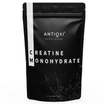
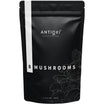
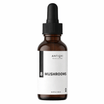
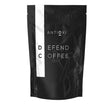
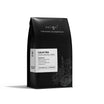
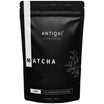
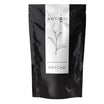
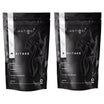


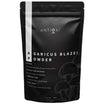
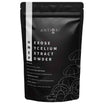
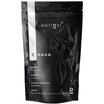
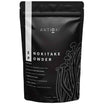
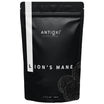
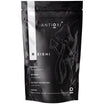
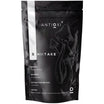
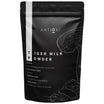
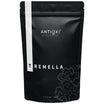
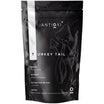

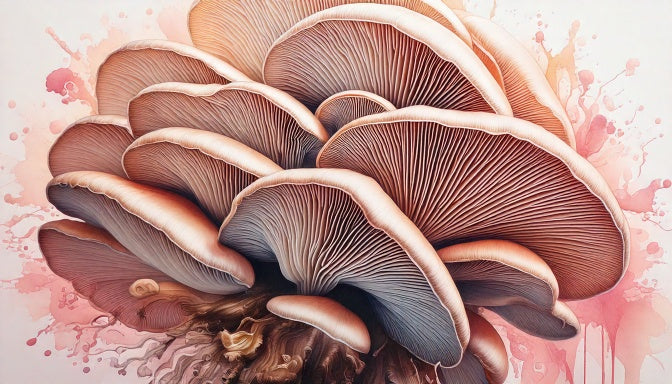

4 comments
Paula
What’s the best mushroom to take for menopause to help with hot flushes x
Angie
I have read your menopause blog and found it very informative. Have you ever considered making a menopause blend? If so I would be very interested 😁
Also, are your supplements safe to take along with HRT? I’m taking the Blended capsules and just thought I would check it’s ok.
Admin (Antioxi)
Hi @Lisa🙋♂️ Thank you for investing your time to read our Menopause Blog, we truly appreciate it. Creating a blend for women sounds like a wonderful idea.
This is something we can look into. When we do we’ll be sure to let you know about it.
Regards,
Theo
Customer Happiness Manager
Antioxi Group
Lisa
Read your blog regarding menopause, would be great to see a women’s shroom coffee or a women’s mushroom blend
Leave a comment
All comments are moderated before being published.
This site is protected by hCaptcha and the hCaptcha Privacy Policy and Terms of Service apply.